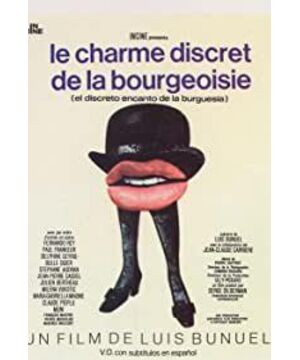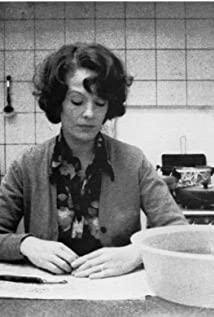The scene of the six people walking on the main road intermittently is like the interval of capitalism’s pendulum stoppage and recovery cycle. It can be said that the bourgeoisie gradually lost and separated from the capitalist road, but had to continue to silently. Walking on the avenue, maintaining a chaotic operating system.
Buñuel's lens is full of metaphorical irony. Taking the initiative to serve as the bishop of the Senegal Gardening, doing what the lower class did in a high position, the resulting gap symbolizes the loneliness of modern religions, succumbing to the reality of materialism. The dispensable existence of the bourgeoisie not only represents the decline of religious belief in modern society, but also hints at the crisis of civilization on the European continent. When the bishop refused to listen to the old woman's dislike of Jesus, and shot and killed the poor who were dying to atone for their sins, Buñuel seemed to be asking compassionately: Is God still alive? When the bishops are blaspheming God, where does the faith of modern people go? Or, does modern society still need faith?
Senechar's theater dream revealed the hideous face of the bourgeoisie disguising its noble character. When facing the audience, that is, facing the reality, he anxiously did not know how to read the lines and act, because the habit of disguising and disguising has long been the natural state of their lives, and the inability to deal with the reality became their fear in their hearts, so they intensified their efforts to improve their sophistication. egoistic attitude, carefully maintaining the image of the upper class. For example, in the film, the guests suspected that the absent Seneshire couple was going to inform the police and left nervously, indicating that the bourgeoisie was always in fear to protect its own interests. However, the Seneshire couple just had a temporary sexual impulse and went to the fence. Make love, here Buñuel ramblingly shows the kinky life of the upper class.
The ambassador who sold drugs because of the establishment of diplomatic relations between the two countries, pointed a gun at the electric toys in the hands of women in the street in the office, means that the communist left is always under the control of capitalism, and their economic level determines the political power. in a weak position. What's even more hilarious is that the capitalists who sell drugs even ridicule American soldiers for taking drugs. The contempt chain of the same camp has caused ideological differentiation within capitalism. At the same time, Buñuel also leads the audience to peep into the most evil side of human nature: Approach everything with the purpose of self-conscious satisfaction.
The most intriguing part of the film is that Buñuel reflects and reflects on the human nature of the upper class through the behavior of the six people. The six people are always on the road, but they can't enjoy the feast of capitalism from beginning to end. Like Schrödinger's cat, they refute each other because they each have their own ideas, and their desires are infinitely magnified by themselves, so even if they are on the same road , is also a state of different dreams in the same bed.
The more wonderful point of Buñuel is that while ridiculing the narrowness and arrogance of the bourgeoisie, it also shows that the bourgeoisie still shows the only way to be kind under the framework, showing that Buñuel still has religious beliefs in the age of gold worship. A certain belief remains.
View more about The Discreet Charm of the Bourgeoisie reviews











